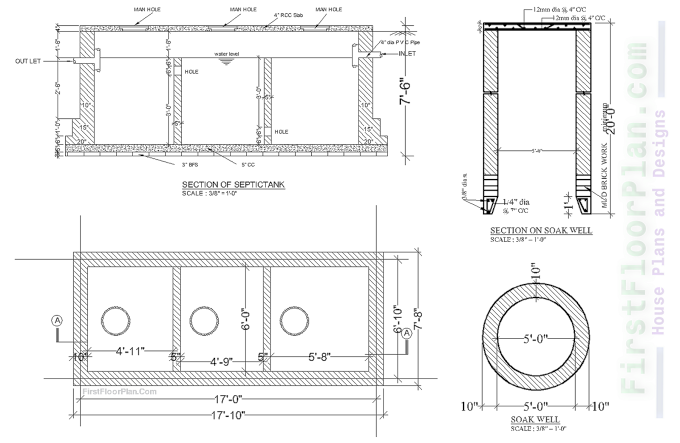Effective property management is vital for maintaining and increasing the value of real estate investments. It involves a blend of strategic planning, operational efficiency, and customer service excellence. Whether you're managing a single property or a vast portfolio, the principles of effective management remain consistent.
This article outlines key strategies and practices for successfully managing properties, ensuring satisfied tenants, and maximizing investment returns.
1. Understand Legal Requirements
The foundation of effective property management is a thorough understanding
of the legal landscape. This includes local, state, and federal laws related to real
estate, such as fair housing regulations, lease requirements, and safety standards.
Staying informed about legal obligations and ensuring compliance can protect
property owners from costly lawsuits and penalties.
2. Maintain Open Communication with Tenants
Effective communication is crucial in property management. Establishing clear,
open lines of communication with tenants can help in addressing their concerns
promptly, maintaining good relations, and reducing turnover.
Regular updates about maintenance schedules, property updates, and any
changes in management policies can enhance tenant satisfaction and loyalty.
3. Implement a Proactive Maintenance Plan
A proactive approach to maintenance can prevent minor issues from becoming
major problems, saving money and time in the long run. Regular inspections and
timely repairs are essential components of property upkeep.
Additionally, investing in quality materials and skilled labor for repairs can
extend the life of property components and improve tenant satisfaction.
4. Utilize Technology for Efficiency
Technology can significantly enhance the efficiency of property management
operations. Property management software can streamline tasks such as tenant
screening, rent collection, maintenance requests, and financial reporting.
Digital tools not only improve operational efficiency but also offer convenience
to tenants, enhancing their overall experience.
5. Develop a Comprehensive Marketing Strategy
To minimize vacancies and attract quality tenants, a comprehensive marketing
strategy is essential. This should include online listings on reputable real estate
platforms, professional-quality photographs, and virtual tours. Highlighting the
property's unique features and amenities can make it stand out in a competitive market.
6. Screen Tenants Thoroughly
A thorough tenant screening process is vital for selecting reliable tenants who
will pay rent on time, take care of the property, and adhere to lease terms. This
process should include checking credit scores, employment history, rental
history, and references. A meticulous screening process can prevent many
issues down the line.
7. Create and Enforce Lease Agreements
A well-crafted lease agreement is a crucial tool for property management. It
should clearly outline the terms of the tenancy, including rent, security deposit,maintenance responsibilities, and rules of conduct. Enforcing the terms of the
lease consistently and fairly can prevent misunderstandings and legal issues.
8. Manage Financials Diligently
Effective property management also requires diligent financial management.
This includes setting competitive yet profitable rent prices, tracking income and
expenses, and creating budgets for maintenance and improvements. Regular
financial analysis can identify opportunities for cost savings and additional
revenue streams.
9. Foster a Sense of Community
For multi-tenant properties, fostering a sense of community can improve tenant
retention and satisfaction. Organizing community events, maintaining common
areas, and encouraging neighborly interactions can create a positive living
environment. Happy tenants are more likely to take care of their units and
respect the property.
10. Stay Informed About Market Trends
Understanding the local real estate market is crucial for effective property
management. Staying informed about market trends, rental rates, and tenant
demands can help property managers make informed decisions about rent
adjustments, property upgrades, and marketing strategies.
This knowledge can also identify investment opportunities and potential threats to profitability.
The Role of Property Management Companies in Chicago
In the bustling metropolis of Chicago, managing property can be a daunting task. From residential apartments to commercial buildings, the complexities of property ownership require expertise, time, and resources. This is where property management companies step in, offering comprehensive solutions to streamline the management process and maximize returns for property owners.
What is Property Management?
Property management encompasses a range of tasks aimed at maintaining and enhancing the value of real estate assets. These tasks include property maintenance, tenant relations, rent collection, financial management, and legal compliance. For property owners, effectively managing these responsibilities can be overwhelming, especially when dealing with multiple properties or busy schedules.
The Role of Property Management Companies
Property management company in Chicago serve as intermediaries between property owners and tenants, handling the day-to-day operations and ensuring the smooth functioning of properties. In Chicago, where the real estate market is dynamic and competitive, these companies play a vital role in optimizing property performance and minimizing risks.
Conclusion
Effective property management requires a multifaceted approach, blending legal knowledge, operational efficiency, and a strong focus on tenant satisfaction. By implementing these strategies, property managers can ensure the longevity and profitability of their real estate investments.Maintaining high standards in every aspect of property management not only enhances the value of the property but also builds a reputable brand that attracts quality tenants and ensures long-term success in the competitive world of real estate.










%20House%20plan%20with%207%20storey%20Apartmen%20building%20Structural%20desing%20%20DWG%20&%20PDF.jpg)



